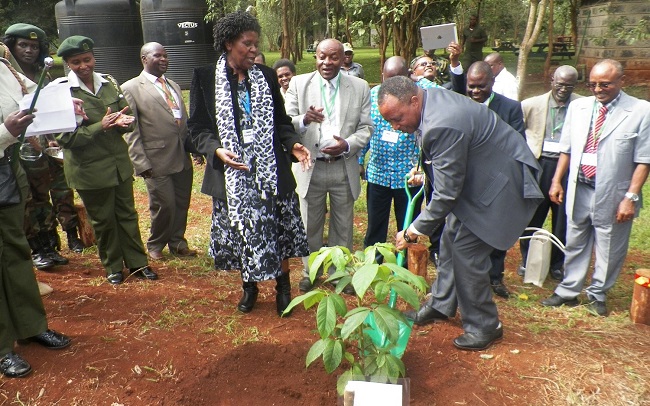The European Union, Oxfam and several other NGOs on Friday, June 7, 2019 urged Nigerians to imbibe the culture of tree planting in their environment in order to curb the menace of air pollution.

Mr Constant Tchona, Acting Country Director of Oxfam, made the call at a news conference to commemorate the 2019 World Environment Day (WED).
The 2019 theme is “Air pollution: We can’t stop breathing, but we can do something about the quality of air that we breathe.”
The news conference was organised by the organisation in collaboration with the EU, Development Exchange Centre (DEC) and Christian Rural and Urban Development Association of Nigeria (CRUDAN).
Tchona, who described the air Nigerians breathe as bad, attributed it to the manner of waste disposal such as refuse burning and emission of carbon-dioxide by industries with about 60 million generators in the markets and homes.
He, however, urged the federal and state governments, donor agencies, the private sector, NGOs, communities, as well as citizens to pool resources and efforts to curb air pollution by planting trees and flowers within their environments.
According to him, tree planting is beneficial in tackling air pollution, tracking wind, curbing erosion among others.
“Looking at air pollution, trees have the ability to track carbon which means that you have better oxygen to breathe. Trees stop erosion and trees are wind breakers.
“It also has economic benefits such as the Mango, Moringa, Guava, Citrus among other trees, these have very viable economic benefits to the communities and where they are planted,” he said.
Tchona, who specifically identified Onitsha, Kano, Port Harcourt and Lagos as having the worst air pollution in Africa and the rest of the world based on WHO statistics, however, noted that more than 114,000 people in Nigeria had died of air pollution in 2017.
Tchona said that environmental pollution cost the global economy five trillion dollars annually in welfare, adding that there was need to intensify efforts to address this challenge.
The country director noted that Oxfam, through EU support, had so far planted 400,000 trees with Pro Resilience Action (PROACT) in Adamawa and Kebbi states; and over seven million trees in Katsina through the Fuel Wood Balance (FUWOBA) initiative among others.
According to him, these are parts of efforts of the organisation among other stakeholders to reduce the rate of air pollution in the country and ensure we breathe in good air.
Similarly, Mr Oluwatobi Salawu, Director of Programmes, CRUDAN, also urged the Federal Government to promote good environmental practices by possibly phasing out diesel engine generators.
Salawu specifically noted that government could subsidise alternative energy or renewable energy such as solar, biogas and others, to encourage Nigerians reduce the implications of air pollution on the populace.
According to him, it is very important to Oxfam, EU and every citizen to ensure the air Nigerians breathe is good and pure.
Also, the Executive Director, DEC, Mrs Titi Yakubu, blamed the rate of air pollution in the country on ignorance adding that majority of communities indulged in human activities that were detrimental to their health.
The highpoint of the event was the inauguration of “One person 4 tree campaign’’ by the organisations.
By Felicia Imohimi
